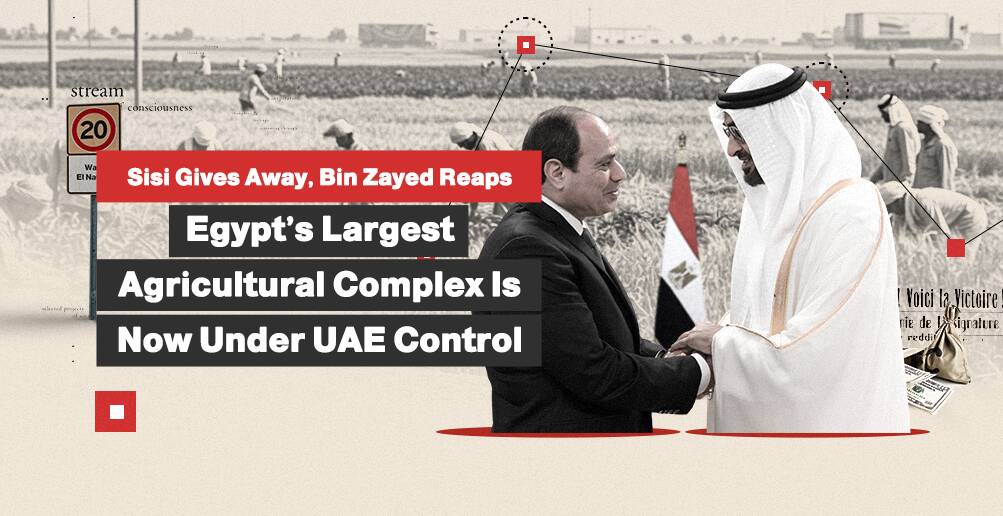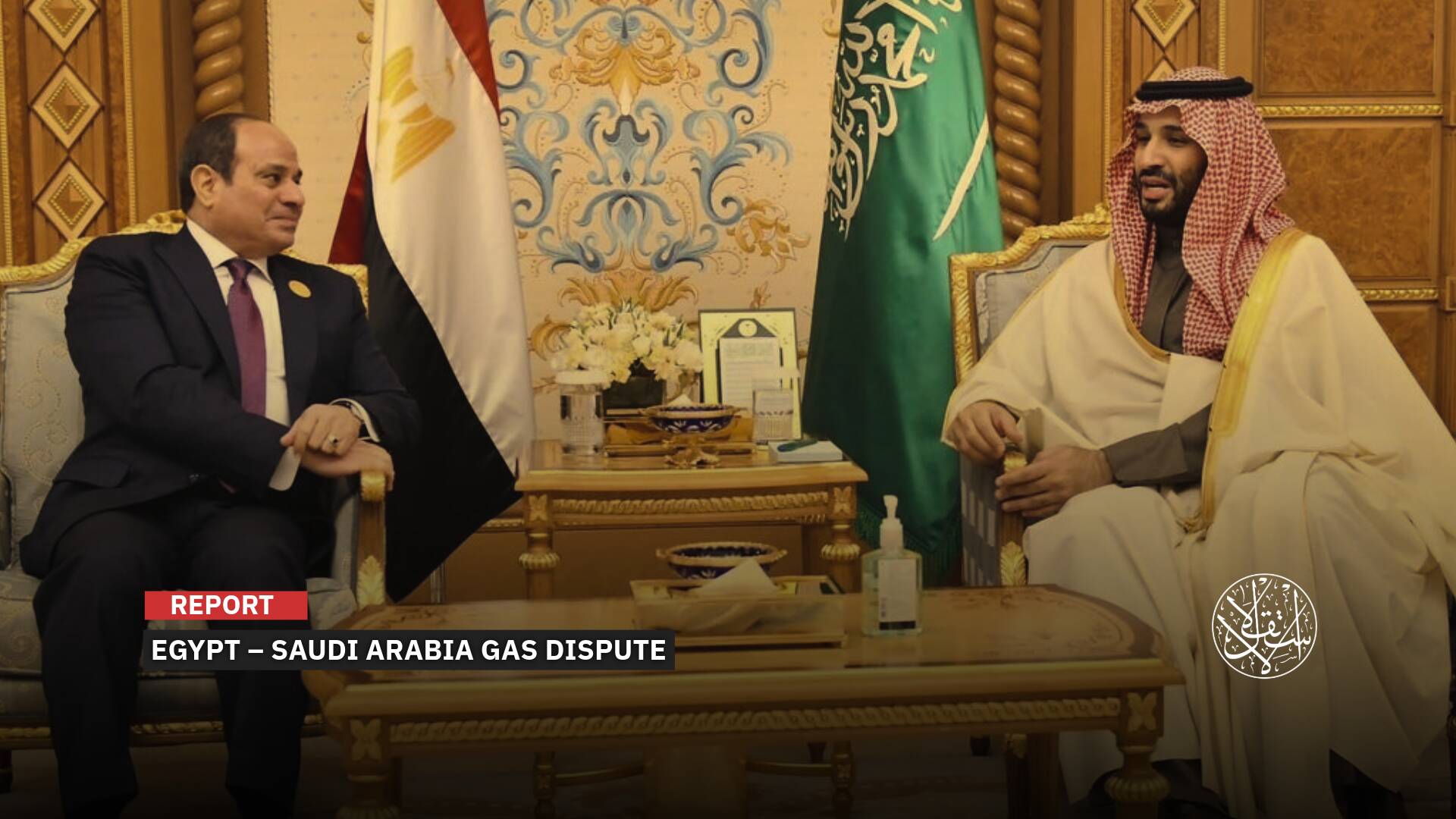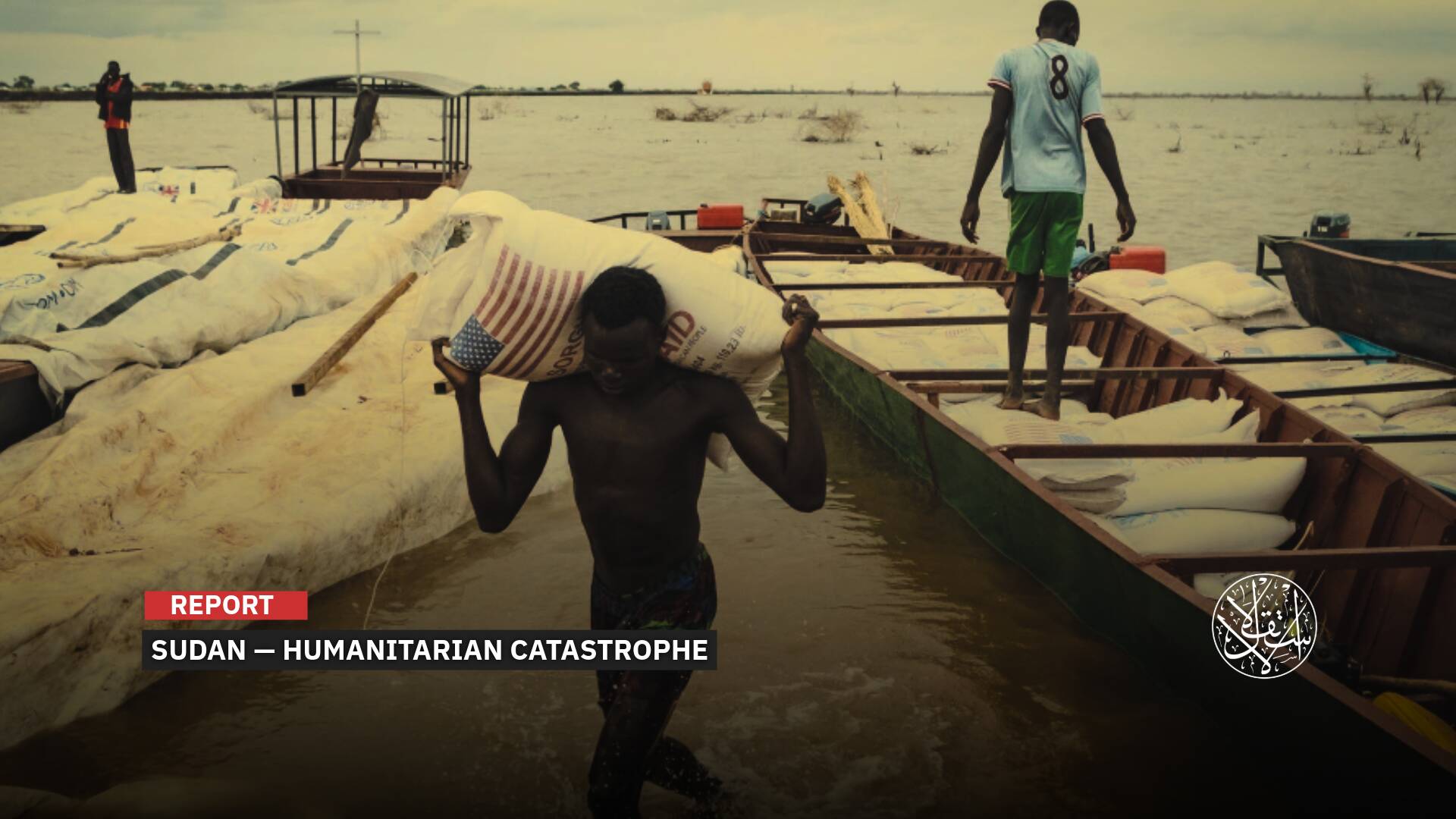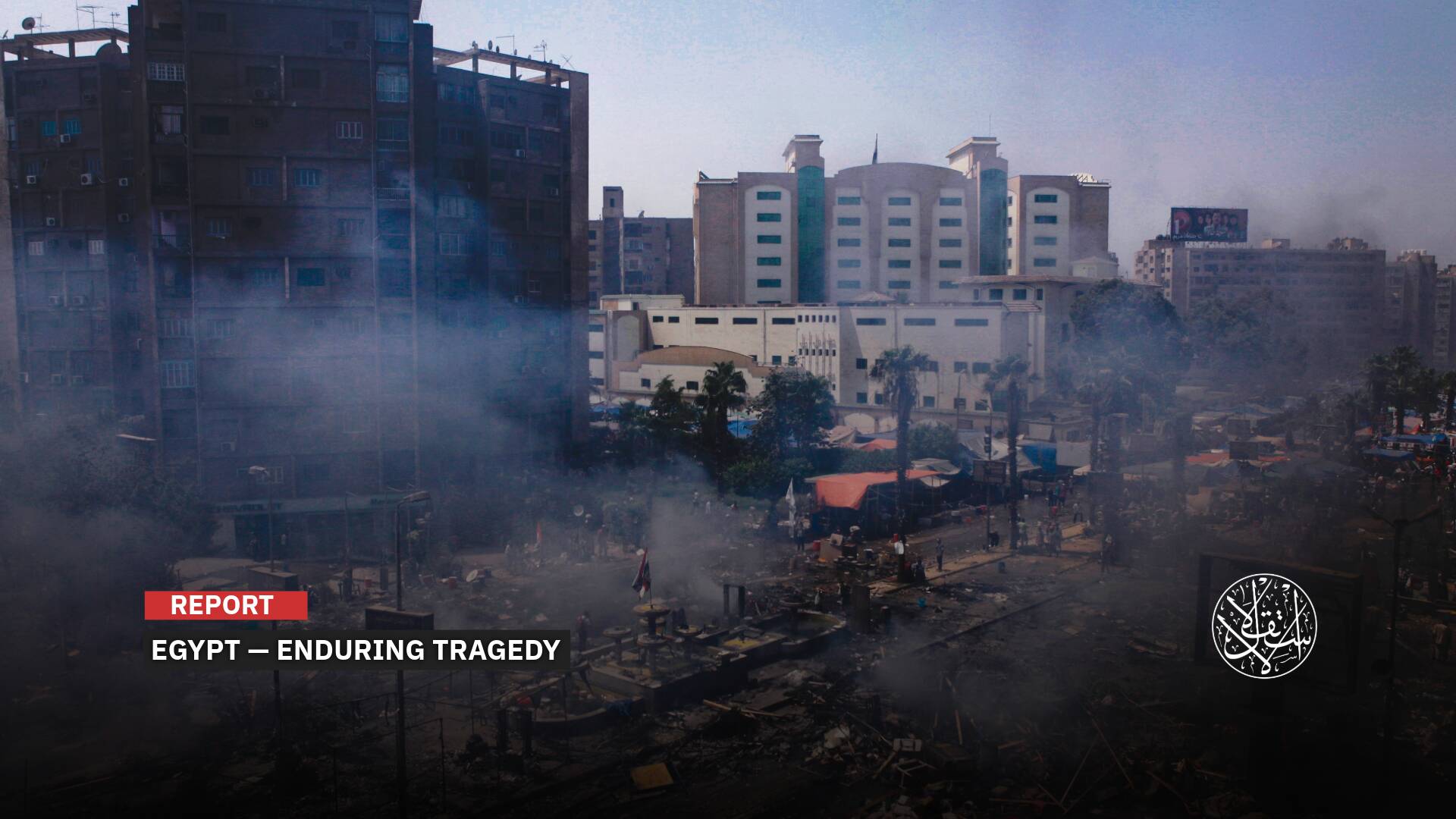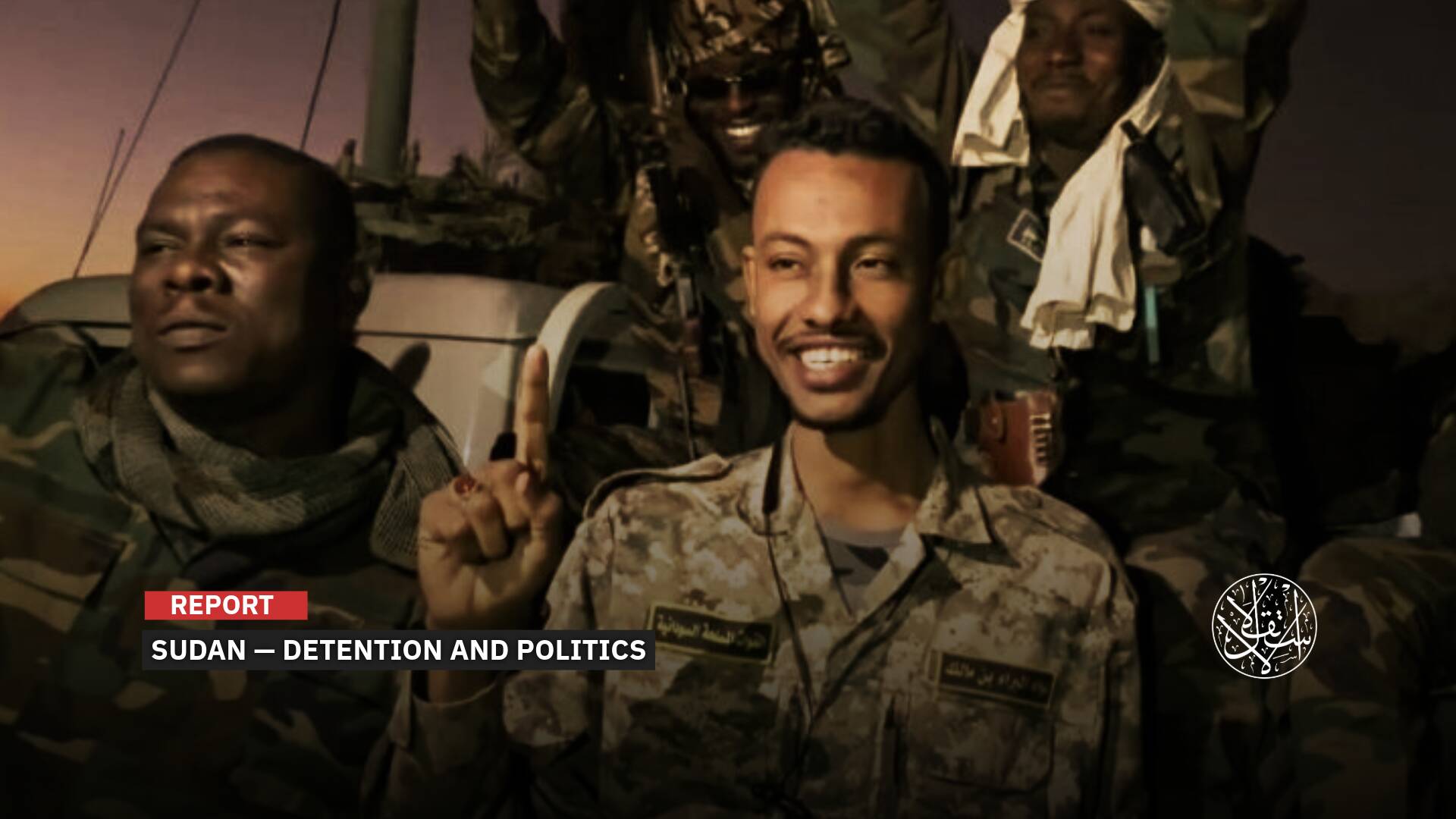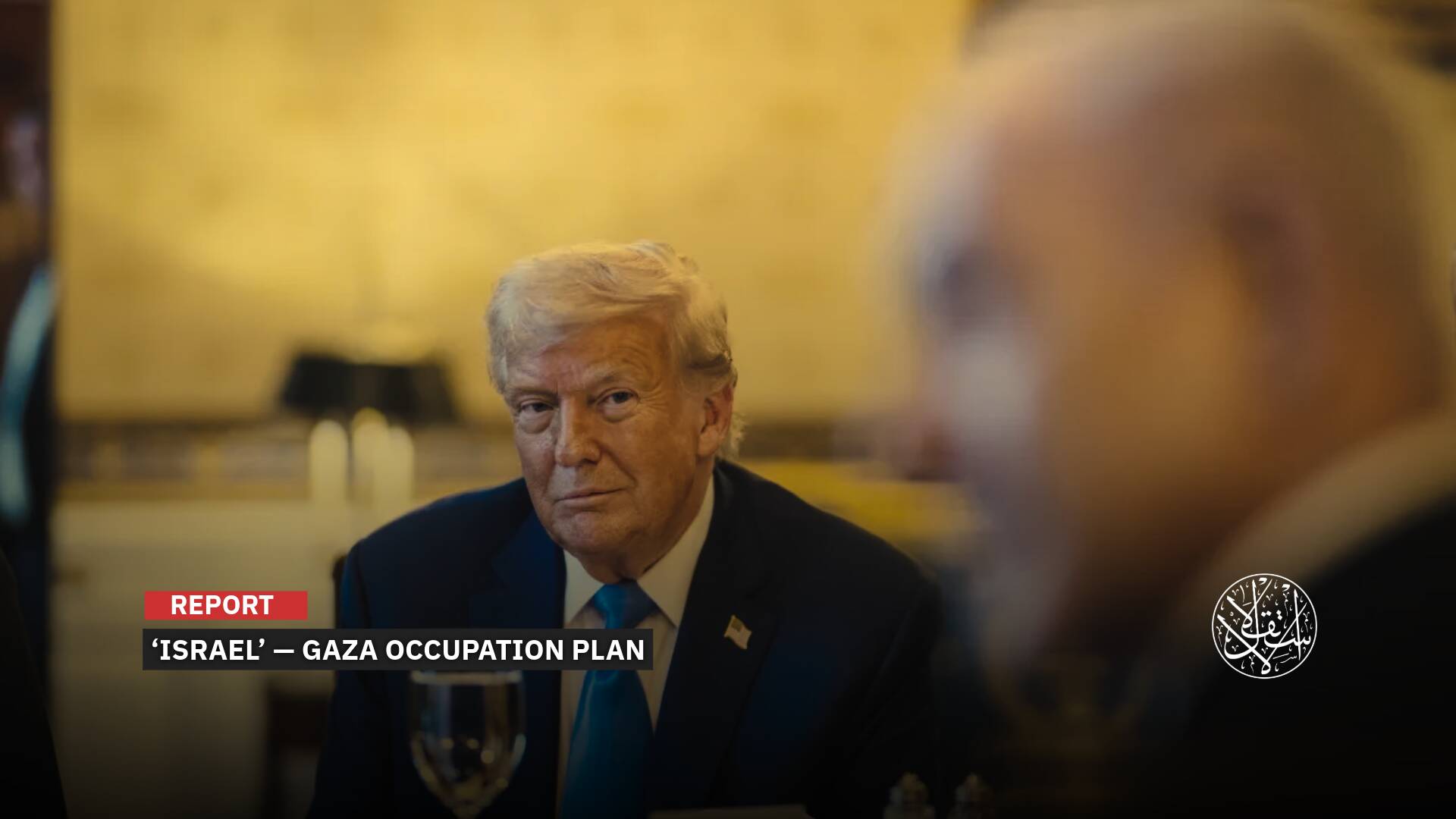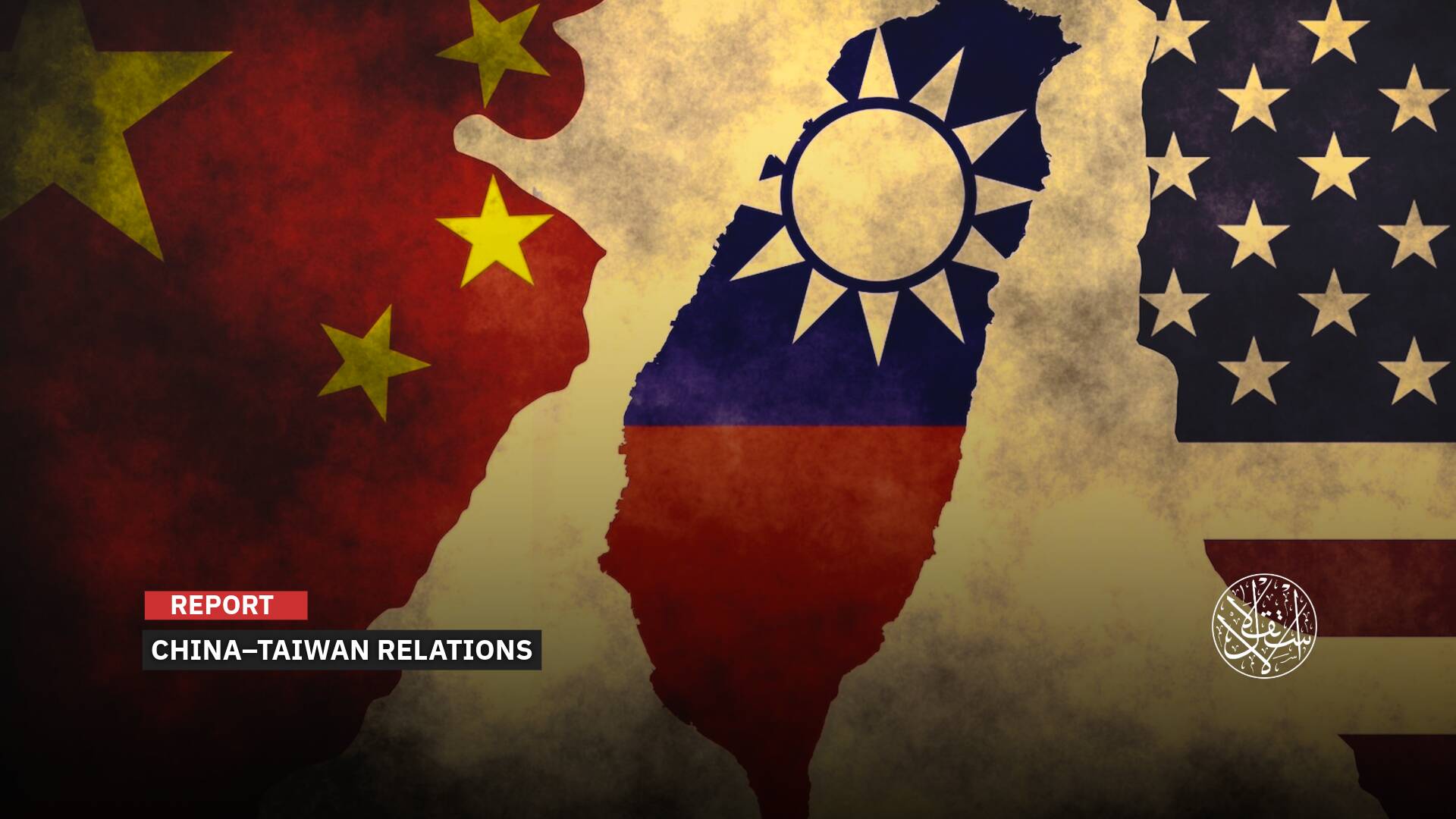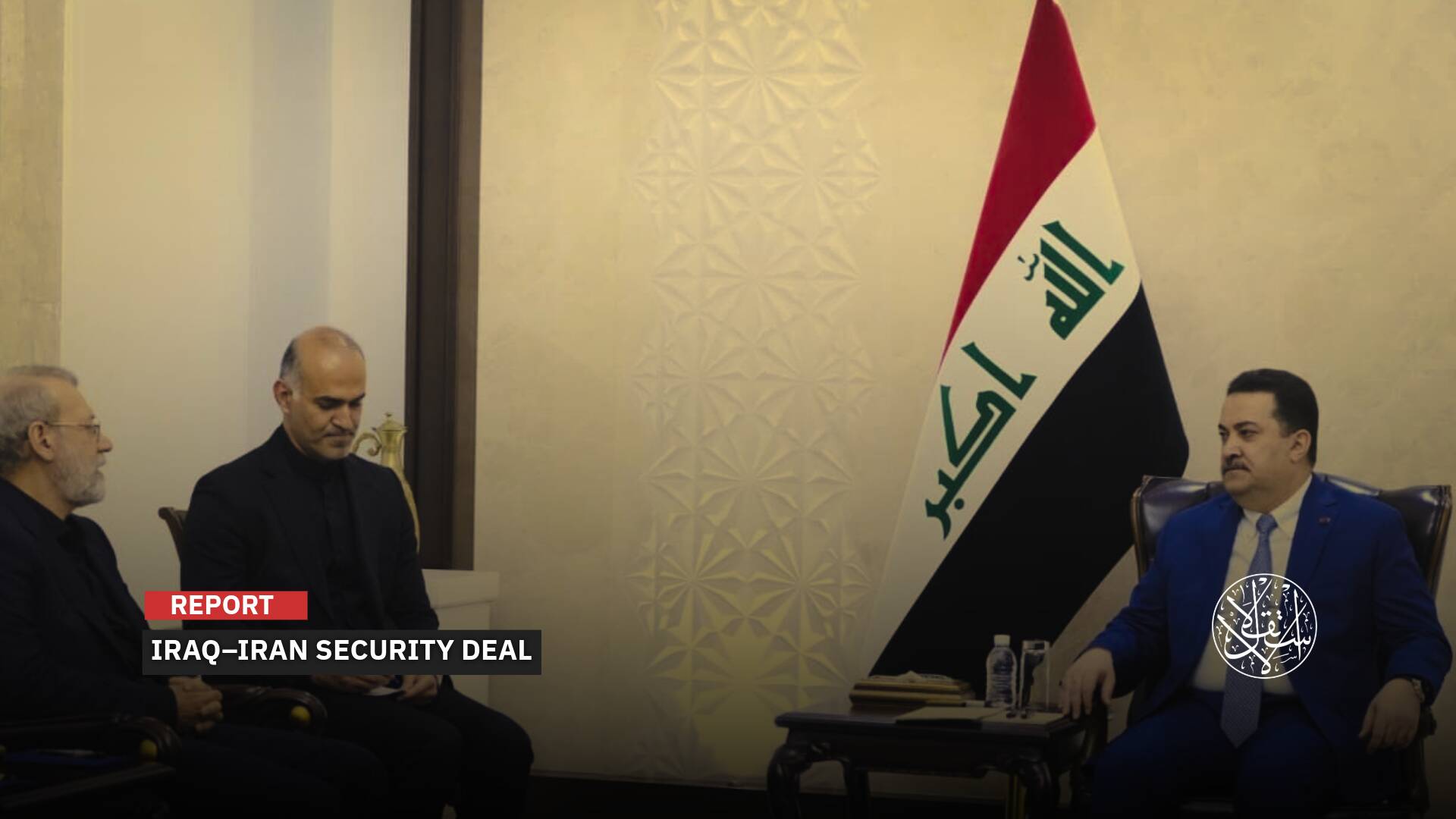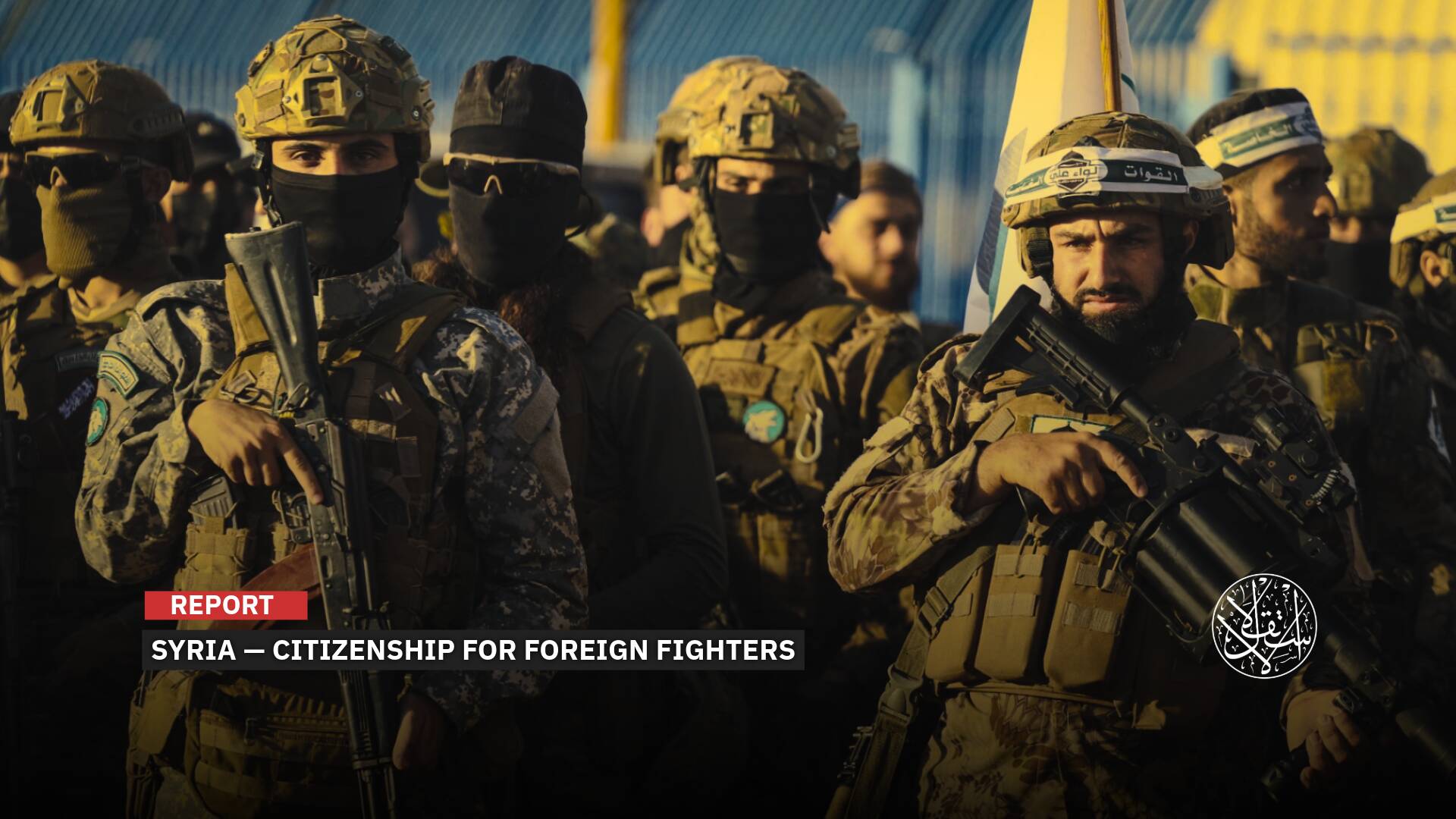Maryam Al-Sadiq Al-Mahdi, Sudanese Minister, Owing Allegiance to Abu Dhabi

Maryam Al-Sadiq Al-Mahdi emerged from the heart of a family experienced in politics. She is the daughter of the late Sudanese Umma Party leader Al-Sadiq Al-Mahdi, and her great-grandfather Muhammad Ahmed Al-Mahdi, who ignited the Mahdist revolution in Sudan in 1881.
Although Maryam was one of the most prominent faces of the Sudanese revolution she emerged strongly on the political stage after the overthrow of former President Omar al-Bashir. The balances of the transitional period, and the participation of her “Father” party in the forces of freedom and change, prompted her to take over the portfolio of the Ministry of Foreign Affairs, as one of the heaviest and most important Ministerial portfolios.
The nomination came at a very sensitive stage at all levels, and in light of Sudan's attempt to cross the bottleneck, facing several challenges, the most important of which are the Ethiopian Renaissance Dam, and the relationship with the surrounding regional powers.
With the passage of time, the features of Maryam Al-Sadiq Al-Mahdi’s foreign policy appeared, as the positions showed its strong bias towards the UAE, which is trying to play a deep role inside Sudan, and in the region as a whole.
Al-Mahdi in Brief
Under the name "Maryam Al-Mansoura", Maryam Al-Sadiq Al-Mahdi was born in Sudan in 1965, and her father is the well-known political leader Al-Sadiq Al-Mahdi.
Her mother, Sarah Al-Fadil, who was also a Sudanese politician, participated in the demonstrations against the regime of General Ibrahim Abboud in 1964. In such an environment and family, Maryam Al-Mahdi grew up, and imbibed politics.
She obtained her Bachelor of Medicine from the University of Jordan in 1990, and practiced it for some time in Sudan, and later shifted to the field of politics.
Maryam joined the ranks of the Ummah Liberation Army (oppositions) at the end of 1997 until the middle of 1998, where she learned to shoot and fire grenades.
She attained the rank of major in the nation's army, which was stationed at the time in the Eritrean lands adjacent to the Sudanese border, within forces formed by the opposition to go the armed way, against the rescue regime headed by Omar al-Bashir.
Maryam Al-Mahdi is proud of that period in which she took up arms, and she still keeps a bullet with her dating back to that date, as an expression of her gratitude for an important stage of her life, as she always tells.
She was arrested twice, the first in 2014, where she spent 28 days during which she was subjected to four interrogations by the Sudanese security services, and the second on January 30, 2019.
In the latter, the opposition National Umma Party announced that the security authorities arrested the deputy head of the party, Maryam Al-Sadiq Al-Mahdi, from her home in Khartoum against the backdrop of the protests in Sudan, and then released her, after an arrest that lasted several hours.
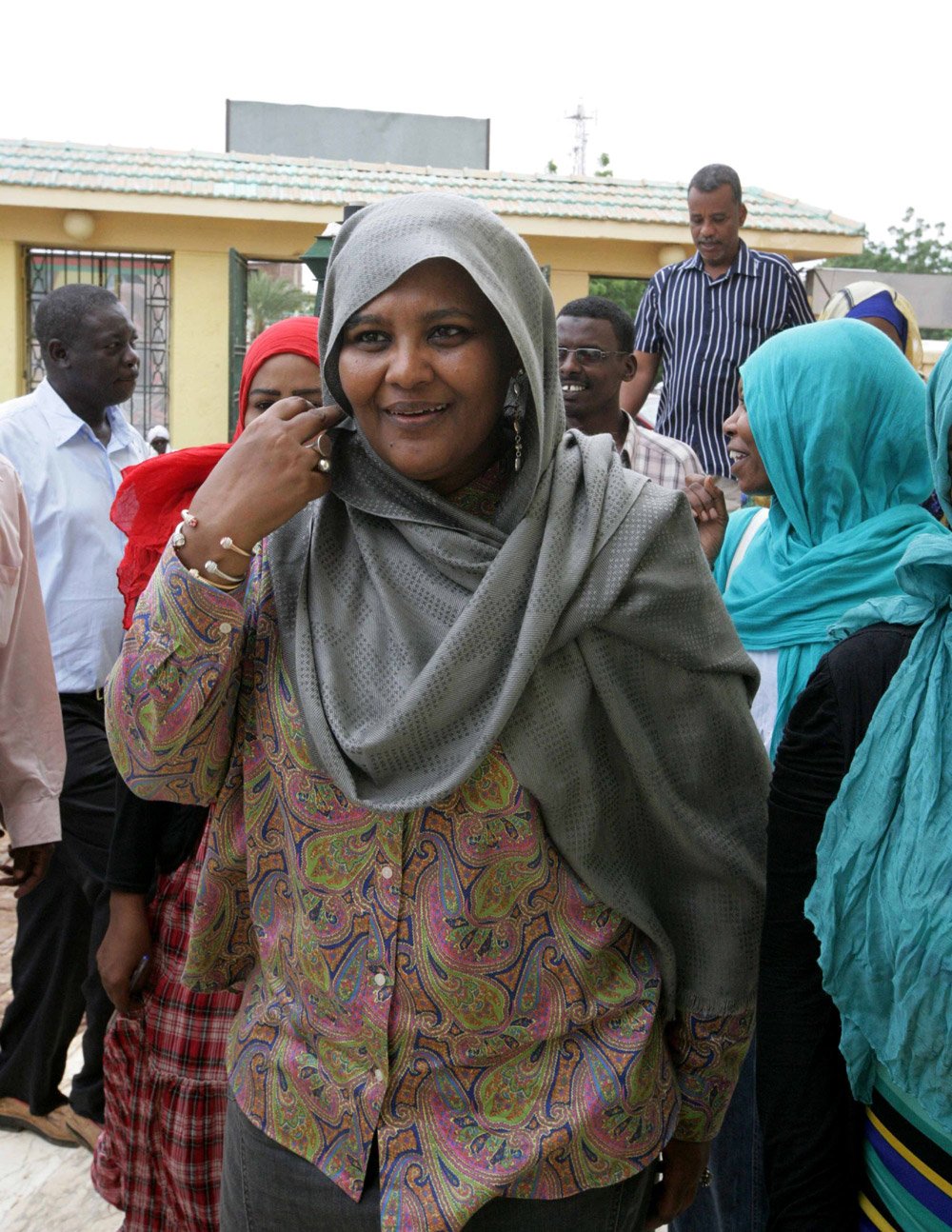
Al-Mahdi", the Minister"
After the revolution’s success in overthrowing Omar al-Bashir in April 2019, the Umma Party and its leader, Sadiq al-Mahdi, and his daughter, Maryam, became among the most prominent participants in shaping the new political life in Sudan.
They were also among the ranks of the Forces for Freedom and Change, the pillar of the revolution, and the first negotiator before the ruling military council at the time, and then the main component of the transitional government.
On August 17, 2019, Maryam sparked widespread controversy among the ranks of political activists and revolutionary forces in the country, during the signing of the final political agreement between the Forces of Freedom and Change and the Military Council, where she saluted the council’s officers, which the revolutionaries denounced.
On the evening of February 8, 2021, the Sudanese Prime Minister, Abdallah Hamdok, announced the formation of a new government, one of the most prominent of its faces, the leader of the National Umma Party, Maryam Al-Sadiq Al-Mahdi, who became Sudan's Minister of Foreign Affairs, succeeding "Asmaa Muhammad Abdullah."
Al-Mahdi received the Ministry of Foreign Affairs in a tough atmosphere, as she had to deal with many complex papers, in line with the requirements of the stage, especially in light of the presence of three crucial matters that require a unique and wise diplomatic dealing.
These three issues are the normalization with Israel, the Ethiopian Renaissance Dam, and relations with Egypt.
Concerning the point of the Sudanese-Arab relations, this particular part presented the focus of another criticism of Maryam Al-Mahdi’s policy, due to her close proximity to Abu Dhabi, and her frequent trips to it.
Relation between AL-Mahdi and the UAE
Al-Sadiq Al-Mahdi had a special relationship with the UAE. At the beginning of its mandate, it formed and led a high-ranking delegation to visit Abu Dhabi, in early March 2021, in response to the Emirati initiative to mediate between Sudan and Ethiopia in the border issue.
The most strange thing is that at a time when the Sudanese street was whispering about the Emirati "Al-Fashqa initiative" aimed at dividing the disputed region with Ethiopia, and explicitly calling on Sudan to relinquish its land, the Sudanese Foreign Minister's plane was landing at Dubai Airport on April 13 / April 2021 as part of an official visit.
The Minister of State at the UAE Ministry of Foreign Affairs, Sheikh Shakhbut bin Nahyan Al Nahyan, welcomed the minister Al-Mahdi.
The Emirati initiative stipulated the withdrawal of the Sudanese army to a situation before November 2020, and the division of Al-Fashqa by 40 percent for Sudan, 40 percent for the Emirates, and 20 percent for Ethiopian farmers under an investment project set up by the Emirates.
During Al-Mahdi's visit to the Emirates, she issued a statement from there, stressing that she appreciates the great support provided by Abu Dhabi's leadership to the Sudanese people, in order to support them in achieving economic advancement and overcoming financial and economic challenges, at that important time.
She faced harsh criticism from the Sudanese media, and the local newspaper "Monte Carlo" published on April 14, 2021, that "Maryam in the Emirates as the Minister of Foreign Affairs of Sudan, the revolution that was launched primarily in order to restore dignity and no dignity without preserving the land, and for all inch in it.”
The newspaper added, "Such initiatives confirm the absence of prestige, so how can a country agree to the division of its land? How will peace be of value in such circumstances?"
Minister of Chaos
The relationship with the UAE and the management of foreign issues were not the only reason for criticizing the Sudanese Minister of Foreign Affairs. Rather, the nature of her management and the imbalance in her institutional work were the most important dimension of criticism.
On June 7, 2021, the Sudanese newspaper Al-Akhbar reported “Chaos and the deterioration of work are afflicting the performance of the Ministry of Foreign Affairs, following a series of policies led by the current minister, Maryam Al-Sadiq."
On the same day, the Sudanese newspaper, "La Rakoba," announced, "Maryam hired the brother of Umma Party leader Mubarak al-Fadil, as a political advisor. This is a scandal happening for the first time in the ministry".
It added, "It does not follow up on any specific diplomatic actions or policies regarding foreign relations, foreign policies and daily diplomatic work, other than the Renaissance Dam affair"
It continued, "She gives this affair all her attention, her travels, and even her meetings with special delegates and ambassadors of other countries in various meetings, are about the Ethiopian dam".
It emphasized, "There is a severe shortage of embassies abroad due to her lack of experience necessary for diplomatic work."
It stressed, "There is a regressive deficit in Sudan's foreign policies and its international relations due to the minister's relegation to the Renaissance Dam matter only, neglecting all other issues”.


